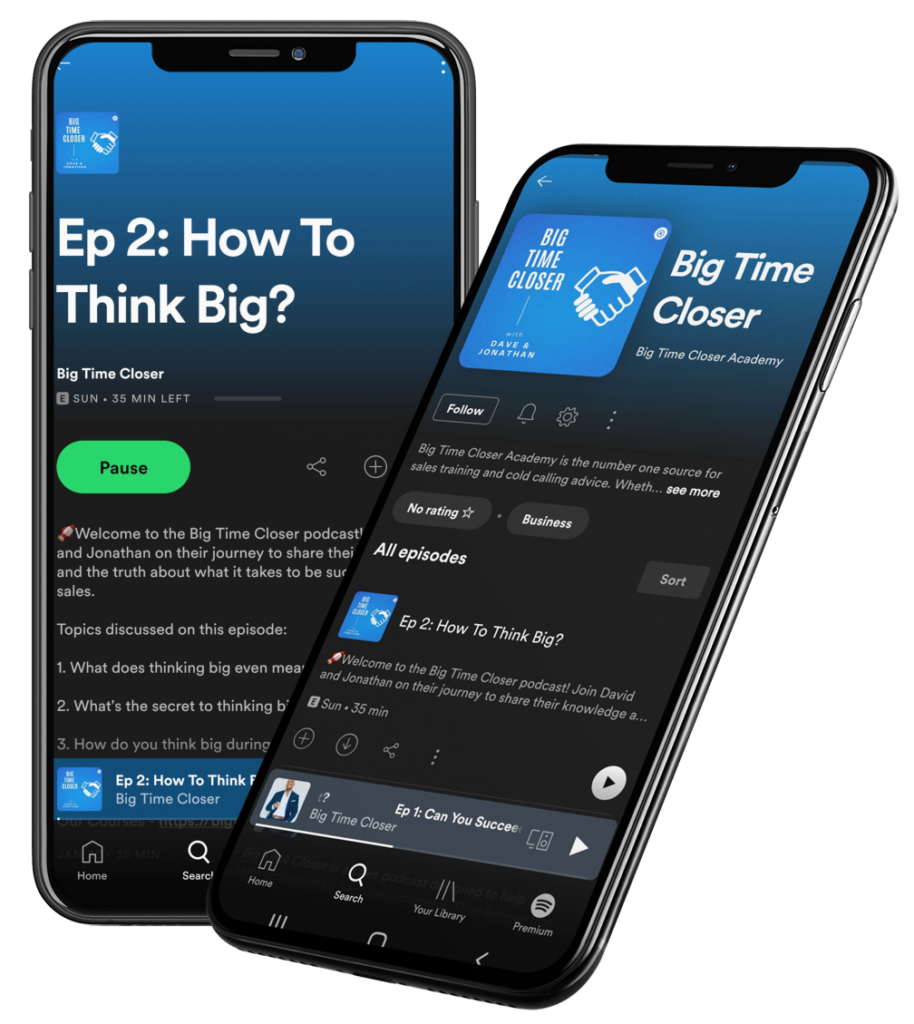Although SDRs are considered entry-level sales positions, they actually have a lot of skills to learn before they can be successful. Because of this, the learning curve for SDRs can be steeper than that of AEs.
Both SDR and AE roles are critical to a company, but they are tough in different ways. SDRs have to be very organized and efficient in their work to meet quotas, while AEs have to build relationships and close deals. In terms of which is tougher, it really depends on the person and what they are good at.
Some people may find it harder to be an SDR because they have to constantly be making calls and sending emails, which can be repetitive and challenging work.
However, others may find it tougher to be an AE because they have to deal with more rejection and handle objections from potential customers. So which job is actually tougher?
Table of Contents
Challenges From An SDR Perspective
The sales development representative, who is responsible for setting up qualified meetings through outbound prospecting, has one of the essential jobs in the sales process. They are the first point of contact with potential customers and are tasked with developing relationships with these individuals.
Here are some of the significant issues they encounter on the job.
- Every day, new technology is released, and companies invest in new tools to improve the performance of SDRs. It is not uncommon for them not to be implemented correctly – and many of them have overlapping functionality, so it is difficult to determine when one should be used over another.
- A lot more time is spent by SDRs searching for accurate information about who to contact rather than actually making and sending calls or emails.
- There is rarely a good process given to SDRs, as most are told to dial a certain number of times per day (50 to 500 dials).
- A client won’t take the next step in a qualification call if an SDR is unable to add enough value. In addition, if they start trying to add too much, they frustrate the client and take away the value of the AE.
- As a standard practice, SDRs can be responsible for many different Account Executives, each of whom has their own preferences for the process of setting qualified meetings.
SDR vs AE: Explained
For business growth, account executives and sales development representatives play crucial roles. However, what is the difference between their roles? Let’s explore the differences between the roles.
Despite sounding similar, account executives play a very different role in the sales process compared to sales development representatives. The sales development representative, or SDR, is the person who initiates the sales process at the very beginning, much before the customer has made a purchase decision. Prior to passing the business along to the account executive, they are responsible for finding qualified leads through outbound prospecting.
Prospects are guided by sales development reps and account executives throughout the different stages of the sales process.
Generating New Leads
SDRs generate leads instead of closing deals, whereas AEs are responsible for closing deals. Using these services, your company reaches out to potential customers who might be interested in your products and services. In their first communication with potential clients, SDRs present your company to them and explain why your company is an excellent fit for their requirements. Based on that initial conversation, the SDR can determine whether a prospect is likely to become a client.
SDRs can reach out to potential clients in a variety of ways, such as through cold calling, social media, or response to client inquiries from your website. The efficiency with which SDRs move leads through a sales pipeline measures their performance because they are responsible for generating new prospects.
As soon as an SDR identifies a potential customer, they set up an initial meeting and then hand the ball over to an account executive.
The Value of Sales Development Representatives
A strong sales development representative team is essential to your business’s ability to access a steady pipeline of prospects. Their job is to keep the sales pipeline full so that your account executives can close the deal. New Leads are the lifeblood of any business.
Your AEs can close more deals and increase your success rate by working together with your SDRs. AEs specialize in closing deals with prospective clients, while SDRs specialize in converting prospects into leads. They need to work hand in hand.
So, Is Being An SDR Harder than Being an AE?
For many people, being an SDR is tougher than being an AE. The job of an SDR is to, essentially, be a master of generating new leads – constantly. Without the SDR, the AE job doesn’t exist. As an SDR, you will face more rejection than anyone else in the company. You will be the one making the most calls, and you will also be the one who hears “no” more times than anyone else.
AEs have more experience and knowledge about sales than SDRs, so they are better equipped to handle objections and consummate a deal. However, an experienced AE will NOT hear “no” as often as an SDR. (But don’t get me wrong, they still hear it often.)
The job of an SDR is essential, though it may not be as glamorous as that of an AE, and that’s part of the reason that makes it such a tough job for some.
Let’s go over the specific advantages and disadvantages of each position:
Advantages of being an Account Executive
There are the following advantages of being an AE:
Learn New Things
As an AE, you will constantly be learning new things. Sure, you’ll learn about your product, but you’ll also learn about the industry, the sales process, and how to handle objections.
More Money
The earning potential is higher for AEs than it is for SDRs. Because they are responsible for closing deals, AEs usually make a higher commission than SDRs.
More Meaningful Relationships
AEs usually have more meaningful relationships with their clients than SDRs. Because they are responsible for closing deals, they usually have more contact with clients and develop a better rapport.
Did I Mention, More Money?
Yes. I know I said this already. But it bears repeating. As an AE, your earning potential usually dwarfs that of an SDR. It can potentially be in the millions vs. a higher-end SDR of six figures.
Disadvantages of Being an Account Executive
There are the following disadvantages of being an AE:
The Pressure Is On
In some ways, the pressure is more significant on AEs than it is on SDRs. An SDR can make 100 calls in a day and only talk to a handful of people. An AE, on the other hand, has to be prepared to close every deal that comes their way.
Constant Commuincation
Account executives must maintain constant communication with prospects if they want to win their business. That communication can take the form of answering questions or following up on proposals. But this whole process requires a lot of practice, experience, and skills. And for an AE – dealing with one customer can take as much time as an SDR dealing with 10 to 20.
Higher Expectations
Today’s market is filled with very high expectations from customers. Customers want and expect more than ever. The AE needs to be able to fulfill those or make the hard call on why they can’t.
And the expectations aren’t just from customers. Upper management usually has high expectations for AEs as well. After all, they are responsible for bringing in the revenue.
Free Time Doesn’t Exist Anymore
AEs need to juggle a lot of things at once. They need to manage their time, their prospects, and their pipeline while also trying to increase their performance. This can be difficult, and sometimes AEs can feel spread too thin. For some, they find that they no longer have any free time.
Advantages of being an SDR
There are the following advantages of being an SDR:
You’re the Foundation
SDRs are the foundation of the sales process. Without them, there would be no leads to follow up on, and no deals to close.
You Get To Experiment
As an SDR, you have the opportunity to try new things and experiment with your sales process. Because you’re constantly prospecting and speaking with new leads, you can quickly test different approaches to see what works best. This allows you to fine-tune your methods so that you can be as effective as possible.
More Job Opportunities
There are more opportunities for SDRs because, without them, there can be no AE. Every company needs sales development representatives.
Become Better At Managing Time
Because you’re required to get new leads into your pipeline and keep them moving forward, you learn how to manage your time effectively. This is a skill that will benefit you greatly in any future sales role.
Work Ethic
As an SDR, you have a lot of calls to make, you talk all day, and you have to think on your feet.
Being an SDR will teach you the importance of having a good work ethic and staying focused even when you’re feeling tired or burned out.
Soft Skills
The soft skills you learn as an SDR will benefit you greatly in any future sales role. These skills include active listening, communication, and empathy.
Resilience
Working as an SDR teaches you resilience, unlike many other jobs. It’s not easy to invest time and energy researching a company, preparing a proposal, calling, emailing, and more, only to be rejected. Highs are plentiful, but lows are generous as well.

Disadvantages of Being an SDR
There are the following disadvantages of being an SDR
High-Performance Expectations
Having high expectations is one of the challenges facing sales development reps; there are very specific goals they need to meet, like getting 50 sales-qualified leads per month.
Lack of Coaching
Too often, sales development representatives are given little to no coaching on how to improve their performance. I’ve seen it time and time again. A lot of SDR’s are thrown to the wolves, with a phone and nothing more than a script.
Lonely Job
Sales development can be a lonely job; you often work alone and feel isolated from the rest of the company.
Dealing with Rejection
Rejection sucks. But as an SDR, you will be the king or queen of getting rejected. It comes with the territory.
Final Verdict
Both sales development representatives and account executives have their pros and cons. It really depends on what you’re looking for in a job, and where your strengths lie.
It’s hard to say that one job is more challenging than the other; they complement each other. If you don’t mind a challenge and have the drive to succeed, then either job could be an excellent fit for you.
Do you want to learn more? Check out our courses on sales development and closing.






